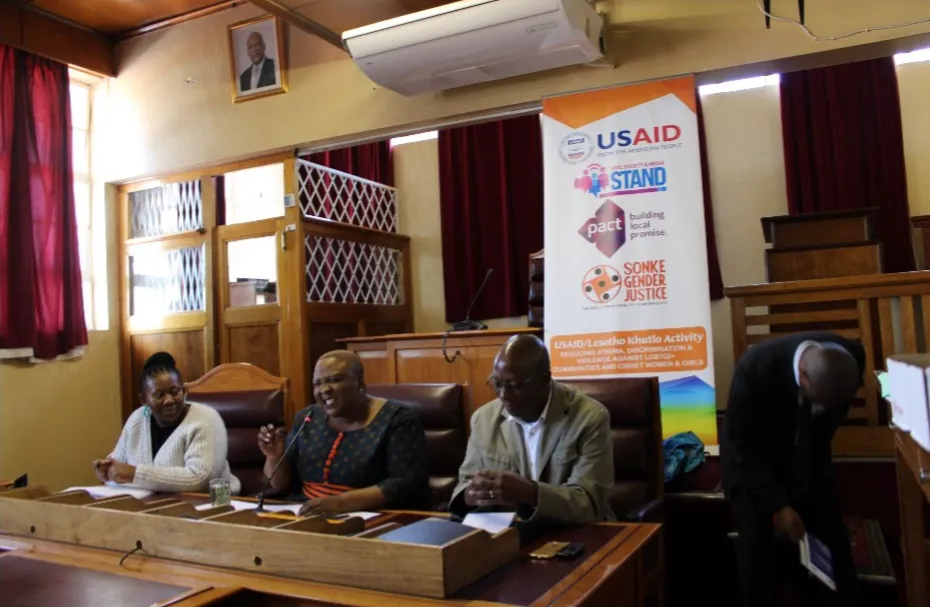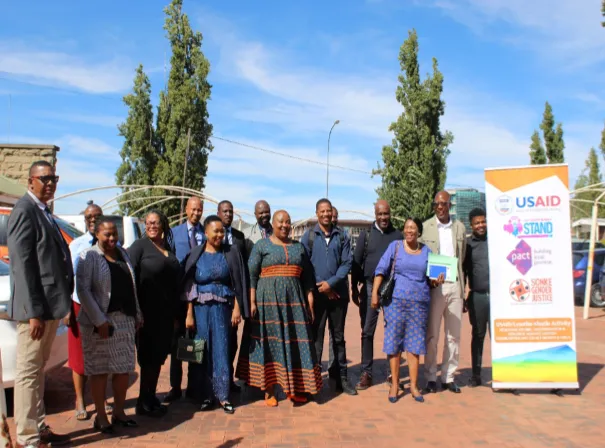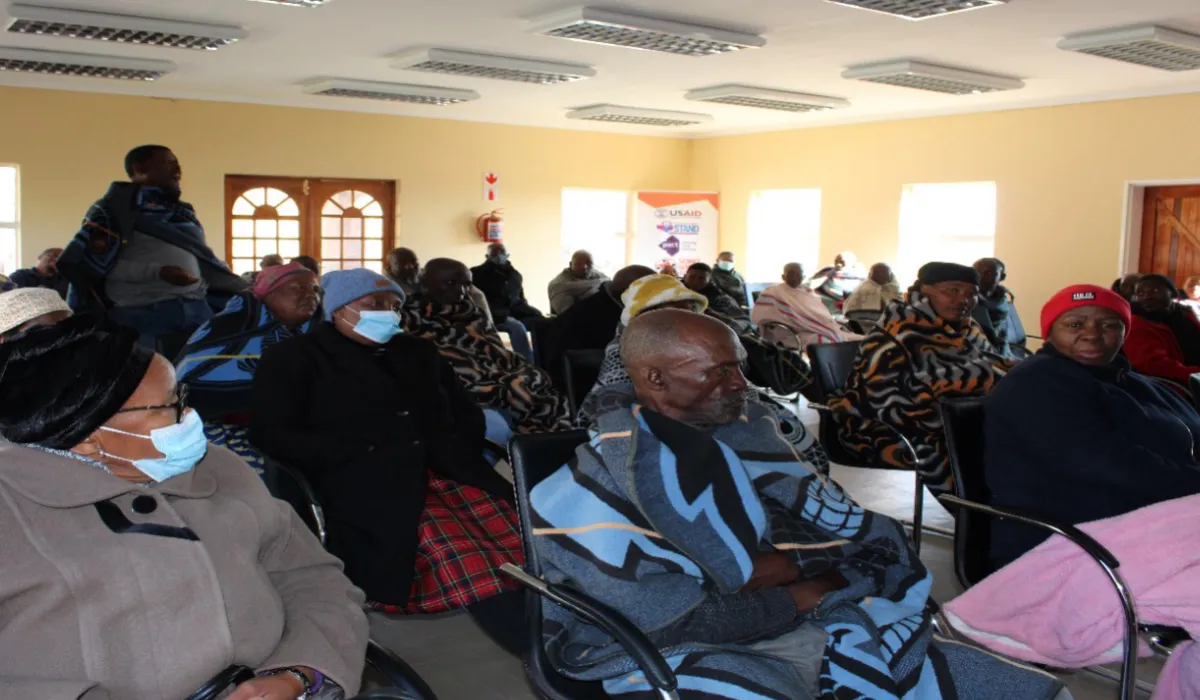During a dialogue session on Gender based violence and lesbian, gay, bisexual, transgender, queer and intersex, LGBTQI+ rights with Lesotho’s Parliament, a member of Parliament stated, “My own daughter is Lesbian. Whether our laws agree with it or not, this is a situation I must deal with in my own house. My fellow parliamentarians, we must accept this as a reality and address it….”
The MP’s statement, offered during a dialogue session facilitated by the USAID Lesotho Khutlo Activity, reflects the reality that LGBTQI+ communities face as a part of Lesotho’s rich social fabric. The Khutlo Activity is a unique program in Lesotho, advocating for the rights of LGBTQI+ people and addressing gender-based violence (GBV) that impacts LGBTQI+ people and cisgendered heterosexual women and girls, implemented in three districts: Leribe, Maseru, and Mokhotlong.
From the start, the Khutlo Activity has prioritized partnerships with traditional and religious leaders and government stakeholders. Traditional leaders, such as the Principal Chiefs, sit at the apex of Lesotho’s cultural custodians and serve as members of the Senate, one of Lesotho’s two houses of Parliament. They also hold jurisdiction over the Area Chiefs who have direct engagement with communities across the country. The Chiefs not only contribute to shaping the national legislative environment and lead traditional governance practices, but also are partners for change, including improving the awareness of LGBTQI+ people and their needs for GBV protection and services.
By building trust with government, traditional, and religious leaders through dialogue about the harmful effects of discrimination, stigma, and social norms that perpetuate GBV, the Khutlo Activity seeks to create a durable process for supporting the human rights of all people in Lesotho and reducing GBV, particularly for vulnerable populations.


During an introductory dialogue session by invitation at the Senate, the Khutlo Activity was introduced prompting an initial conversation about the key issues the Khutlo Activity seeks to address and winning buy-in from the Chiefs, which is essential for continuing dialogue sessions with community members across the country. In this initial meeting with the Senators and Members of Parliament from the Gender and Nutrition Committee as well as the Social Cluster, when discussing LGBTQI+ rights and GBV considerations, the Senators welcomed the notion of open and candid discussions on the social complexities that Khutlo Activity would have address when it went into the communities to implement the Activity.
Cascading from this initial discussion, the Khutlo Activity held further dialogue sessions with Parliament to deepen the discussion of LGBTQI+ rights and began organizing discussions with Area Chiefs in Khutlo’s target districts. During these discussions, participants shared personal stories of how LGBTQI+ issues have impacted their own families and the information that they are seeking as community leaders to understand the dynamics around LGBTQI+ individuals and families better.
“My own daughter – in – law decided to leave her marriage and live with another woman. I am not sure how to handle this as both her father-in-law as well as a Chief. Where can we get guidance to better understand such dynamics?” Local Chief in the Maseru District.
This acceptance for dialogues is a positive outcome for the Khutlo Activity in advancing addressing some of the drivers of GBV as well as addressing the barriers to greater LGBTQI+ acceptance at community level. But it also begins the process of building a foundation advanced by Lesotho’s leaders of spaces to hold open discussions about LGBTQI+ rights and GBV in contexts, and to leave no one in Lesotho behind.
*Quoted speakers purposefully anonymous as requested.


